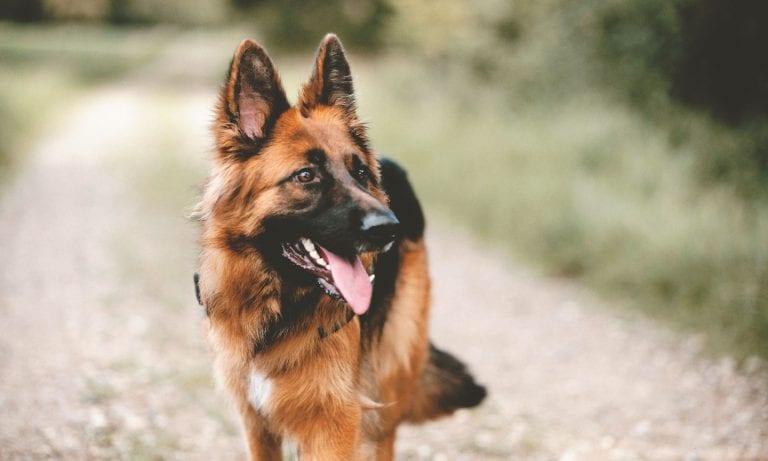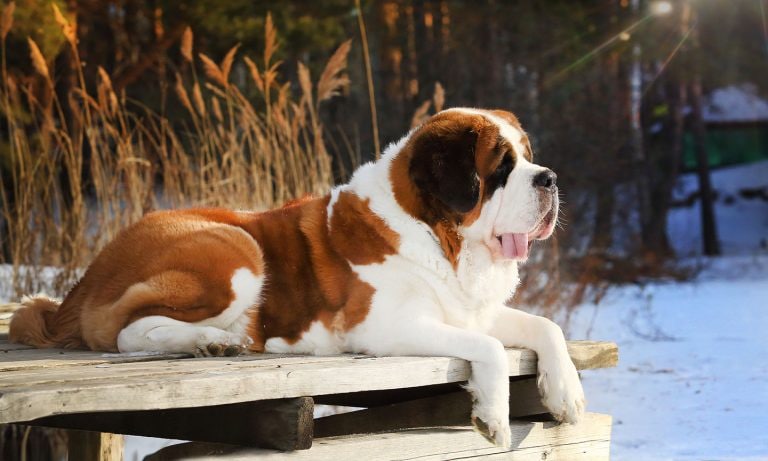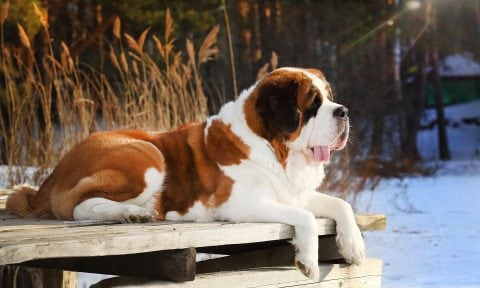German Shepherd vs Saint Bernard

Breed Snapshot
Best For
German Shepherds, intelligent and loyal, thrive on mental challenges and active engagement. With a strong work ethic, they make exceptional working dogs. The rewarding companionship of a German Shepherd is perfect for those seeking a...
German Shepherds, intelligent and loyal, thrive on mental challenges and active engagement. With a strong work ethic, they make exceptional working dogs. The rewarding companionship of a German Shepherd is perfect for those seeking a devoted and versatile pup.
German Shepherd Temperament
The German Shepherd’s best trait is their intense, unwavering loyalty to their families. (There’s a reason they make some of the best police dogs.) The fearless breed has also been known to put themselves in harm’s way before they let a family member get hurt. Socializ...
The German Shepherd’s best trait is their intense, unwavering loyalty to their families. (There’s a reason they make some of the best police dogs.) The fearless breed has also been known to put themselves in harm’s way before they let a family member get hurt.
Socialization and training are essential for German Shepherds, to teach them that most things in this world are nothing to fear (and nothing that poses a threat to their loved ones, either). Early social interactions with kids, babies and other animals is also important if you want your German Shepherd to be well-behaved around guests. (Remember to teach children how to interact appropriately with dogs, too.) With the proper education, this easy-to-train pup can be a great family dog.
German Shepherds are born talkers. They will bark when they’re bored, and they’ll bark to alert you if something isn’t quite right. But training and exercise can help curb a lippy pup and keep their barking to when you need it the most.
These dogs are incredibly smart, and they are at their best when they have a job to do, whether working as a police or military dog, doing tracking or search and rescue, serving as a guide dog or at home practicing scent work or solving puzzles for a treat. And when they’re with their family, German Shepherds will let their silly side show as they flip their toys in the air and roll around on their backs.
German Shepherd Traits

Breed Snapshot
Best For
Drooly gentle giants, Saint Bernards are best for larger homes with experienced pet parents who can provide lots of focused training and regular exercise—and keep up with their grooming needs. Known for their calm...
Drooly gentle giants, Saint Bernards are best for larger homes with experienced pet parents who can provide lots of focused training and regular exercise—and keep up with their grooming needs. Known for their calm and affectionate nature, these teddy bears are kid- and pet-friendly, to boot.
Saint Bernard Temperament
Would you ever expect your personal bodyguard to be mistaken for a floofy teddy bear? Probably not, but you should. (Because: safety first. And also because: adorable.) Saint Bernards’ gentle, calm demeanor with a dash of playfulness are a natural fit for homes with older children, other dogs and eve...
Would you ever expect your personal bodyguard to be mistaken for a floofy teddy bear? Probably not, but you should. (Because: safety first. And also because: adorable.) Saint Bernards’ gentle, calm demeanor with a dash of playfulness are a natural fit for homes with older children, other dogs and even friendly felines. They’ll also mesh with younger children, but littler kiddos will need extra supervision to ensure they can respect your pup’s boundaries.
A Saint Bernard dog doesn’t always comprehend just how big they are, which can cause some consternation and tears when playing with tipsy tots or unstable adults (or tipsy adults, for that matter). Training for both humans and the dog is a must to be sure nobody accidentally gets knocked over during backyard romps or in-home zoomies. Saints are friendly dogs (and they swear they didn’t mean to knock you down! They thought you were trying to start a game of tag!) and will stay that way with a loving home and positive reinforcement-based training. In general, Saints are not known to bite, but it’s always important to properly socialize and train any dog. Socializing your Saint Bernard puppy before 20-24 weeks of age allows your outgoing pup to learn good manners and blossom as a beloved family pet.
If it looks like you’re going to do something fun, Saints will want to join you, no questions asked. They’re in the car before you can even find your keys, ready for a nature trail adventure or a Sunday drive through the country. Whatever their human is doing, they want to mirror the activity or supervise from a cozy spot next to your feet.
If you have a job you need doing, give it to a Saint, and they will be more than happy to check it off your to-do list. Saint Bernards are a working breed who love to help people. Give them a chore, like helping feed livestock on a farm or serving as a door greeter at your small business, and they’ll be happy campers. Saints are eager to please. You’ll know the Saint Bernard is in their element when they can’t stop the drool from flowing and their tail from wagging.




